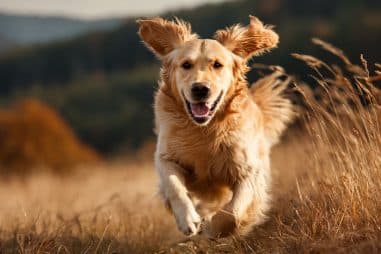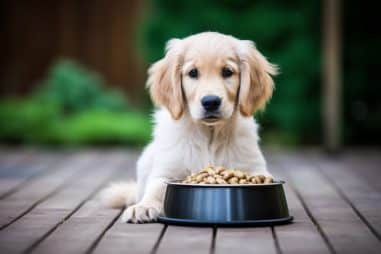Bringing a Golden Retriever puppy into your home is an exciting journey full of love and learning. These affectionate, intelligent dogs make wonderful companions but require proper care and attention from the very beginning. Whether you’re a first-time dog owner or adding another furry friend to your family, understanding how to provide the best care for your Golden Retriever puppy will set the foundation for a happy, healthy life together. This guide covers all the essential aspects—from preparing your home to building a lifelong bond—to help you feel confident and ready for your new arrival.
Preparing Your Home for a Puppy
Before your Golden Retriever puppy steps paw into your home, it’s important to create a safe and welcoming environment. Puppies are naturally curious, and a few puppy-proofing steps can prevent accidents and damage. Start by securing electrical cords out of reach and removing small objects that your puppy might swallow. Consider using baby gates to limit access to certain areas, especially stairs or rooms with fragile items.
Designate a comfortable space for your puppy to rest and feel secure. A crate or a cozy puppy bed placed in a quiet corner works well. This area will not only serve as a safe haven but also assist with crate training. Stock up on essential supplies, including food and water bowls, cleaning materials, puppy pads, collars, and leashes. Having everything ready will make your new puppy’s transition smooth and stress-free.
Feeding and Nutrition Essentials
Proper nutrition is vital for your Golden Retriever puppy’s growth and development. Choose a high-quality commercial puppy food formulated specifically for large breeds, as these contain the right balance of nutrients to support healthy bones and muscles. Avoid feeding table scraps or adult dog food, which might not meet your puppy’s nutritional needs.
It’s best to follow the feeding guidelines provided on the food packaging, but keep an eye on your puppy’s weight and adjust portions accordingly. Generally, puppies need to be fed three to four times a day until about six months of age, then transition to two meals per day. Fresh water should always be available to keep your puppy hydrated.
If you have any questions about which foods or supplements to provide, consult your veterinarian to ensure your puppy is getting everything necessary for a strong start.
Establishing a Vaccination Schedule
Vaccinations protect your Golden Retriever puppy from dangerous diseases and are one of the most important aspects of early care. Puppies receive their initial vaccinations between six to eight weeks of age, followed by a series of boosters until they are about 16 weeks old.
Core vaccines for Golden Retrievers typically include protection against parvovirus, distemper, adenovirus, and rabies. Depending on your location and lifestyle, your vet might recommend additional vaccines such as bordetella (kennel cough) or Lyme disease.
Keep a detailed vaccination record and follow your veterinarian’s schedule carefully. Regular vaccinations will help ensure your puppy grows into a healthy adult dog with a strong immune system.
Early Socialization and Play
Golden Retrievers are friendly and social dogs that thrive on interaction. Early socialization is crucial to help your puppy develop confidence and good behavior around other dogs, people, and new environments. From as early as eight weeks old, gradually introduce your puppy to different sounds, sights, and experiences in a positive, controlled way.
Arrange playdates with vaccinated puppies or gentle adult dogs, and expose your puppy to various types of people, including children, men, and women. Puppy socialization classes are excellent for structured learning and making new friends.
Playtime is not only fun but also enhances mental and physical development. Provide a variety of safe toys—such as chew toys, puzzle toys, and balls—to keep your puppy entertained and stimulated.
Potty Training Tips
Potty training requires patience, consistency, and positive reinforcement. Establish a regular schedule for bathroom breaks by taking your Golden Retriever puppy outside first thing in the morning, after meals, naps, and play sessions. Choose a designated potty spot close to your home to help your puppy associate the area with bathroom time.
When your puppy eliminates outside, offer plenty of praise, treats, or a happy voice to reinforce the behavior. Avoid punishment for accidents inside, as this can create fear and confusion. Instead, clean up accidents thoroughly to remove any lingering scents and prevent repeat incidents.
Using puppy pads can be helpful initially, especially if you live in an apartment, but aim to gradually transition to outdoor potty habits. Remember, consistency is key, and many Golden Retrievers catch on quickly with the right approach.
Health Monitoring and Vet Visits
Regular health check-ups with a trusted veterinarian are essential to keep your Golden Retriever puppy thriving. Besides vaccinations, your vet will check for parasites, monitor weight and growth, and discuss preventive care such as flea and tick control and spaying or neutering.
Monitor your puppy daily for any signs of illness such as changes in appetite, energy levels, stool consistency, or unusual behavior. Early detection of health issues often leads to easier and more successful treatment.
Golden Retrievers are predisposed to certain genetic conditions such as hip dysplasia and heart issues, so maintaining open communication with your vet and following recommended health screenings is very important.
Safe Toys and Environment Considerations
Puppies love to chew, explore, and play, so providing safe toys and a hazard-free environment is critical. Avoid toys that are easily torn apart or have small pieces that could be swallowed and cause choking. Durable rubber toys, nylon bones, and interactive puzzle toys work well for Golden Retriever puppies.
When selecting toys, also consider your puppy’s age, size, and chewing strength. Rotate toys regularly to keep your puppy interested and entertained. Remove toys that become damaged or too dirty.
In your home and yard, ensure any toxic plants, chemicals, or sharp objects are out of reach. Golden Retrievers are known for their friendly nature but can quickly get into mischief if something smells tasty or intriguing.
Building a Lifelong Bond
The relationship you build with your Golden Retriever puppy during these formative months will shape your life together. Spend quality time daily through gentle handling, training sessions, and play. Positive reinforcement training methods will help foster trust and encourage desirable behaviors without fear or stress.
Learn to read your puppy’s body language and respect their limits, especially during teething or when tired. Patience and consistency combined with lots of affection create the foundation for a happy, well-adjusted dog.
Golden Retrievers are loving, loyal, and eager to please, so nurturing your bond early will ensure your puppy grows into a confident, joyful companion for years to come.
Welcoming a Golden Retriever puppy into your home is both a joyful and demanding experience. By preparing your home thoughtfully, focusing on nutrition, health care, and socialization, and building a strong, loving connection, you’ll set your puppy up for a lifetime of happiness and well-being. With commitment and care, your new furry friend will become an inseparable part of your family.







